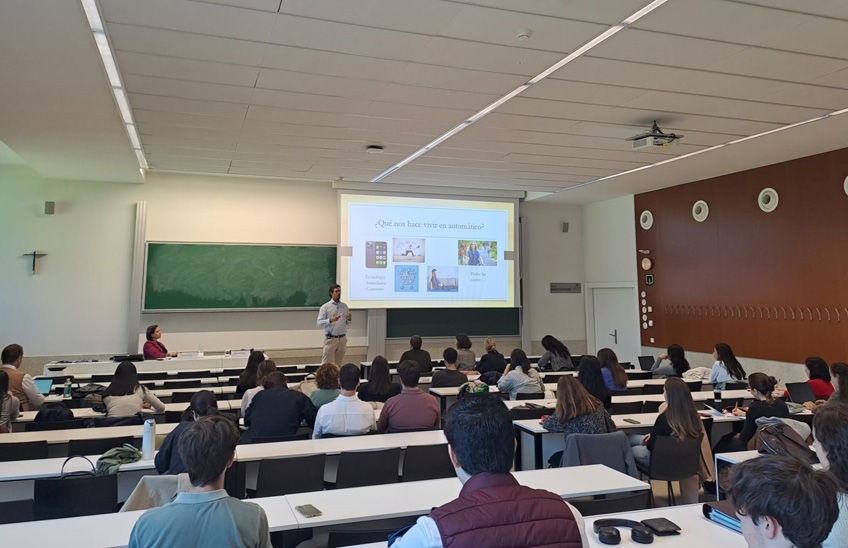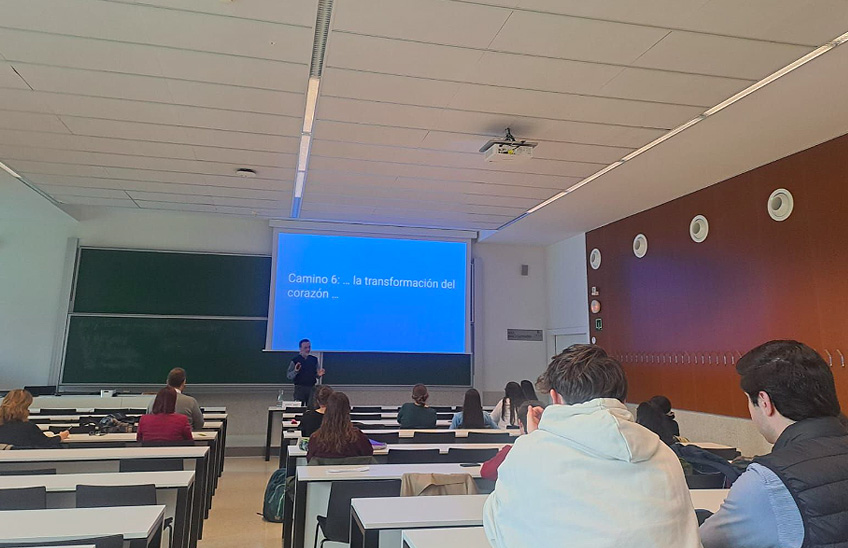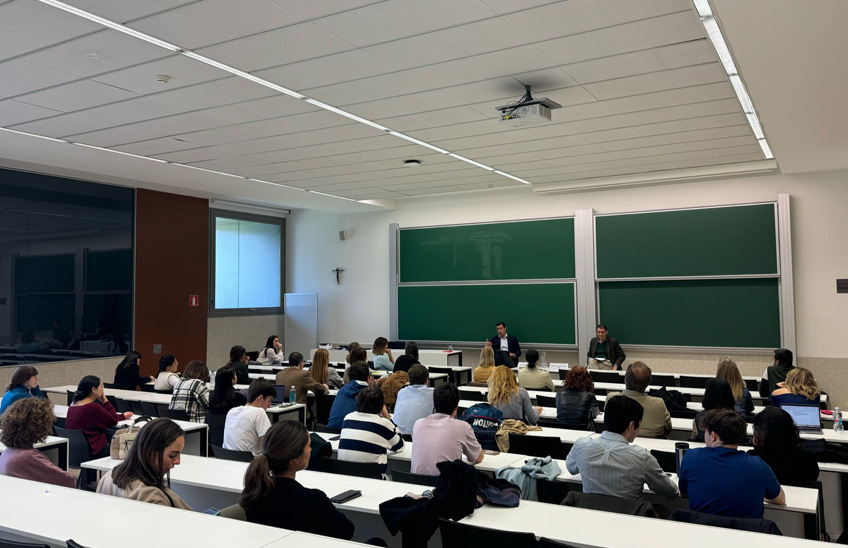Raquel Cascales, philosopher: "Am I doing what I want to do to become what I want to be?"
The University's Counseling and Wellness Unit holds the first session "From automatism to reflection" of 'Re-connect', a cycle of four sessions aimed at students and mentors.

PhotoCedit/
15 | 11 | 2024
Compass, the University's Counseling and Wellness Unit, at partnership with the Institute Core Curriculum, has held the first session of Re-connect, a cycle of 4 sessions aimed at students and mentors. Under the degree scroll "Thinking better to live better", the initiative aims to goal help attendees to deepen in how to think better and reflect; to learn to live from the contemplation of art; to identify the tendency to polarized thinking and the need to gain in openness; and to reconnect with nature to reconnect with oneself.
The presentation of the workshop, which was attended by more than 50 people, was position by Enrique Aubá, coordinator of the project "Health and Wellbeing" of the University's Strategy 2025. The structure of the session, given by Arturo Lecumberri, psychologist of the Orientation and Well-being Unit, and Raquel Cascales, philosopher, professor of the School of Architecture and the Institute Core Curriculum, was inspired by ideas from the book "Thinking Fast, Thinking Slowly", by the Israeli-American psychologist Daniel Kahneman, award Nobel Prize winner at Economics in 2002.
In his speech, Arturo Lecumberri presented the two systems in which Kahneman summarized two ways of thinking, of functioning, of living: on the one hand, the usual automatic mode, energy-saving, highly influenced by emotional states, sensations and perceptions; on the other, the reflective mode, which requires more effort, is conscious, slower. "The automatic mode is the one that tends to dominate, has advantages from an adaptive and efficiency point of view, while it can lead to errors of perception and can be detrimental to well-being and growth staff," he said.
According to the expert, one of the tasks proposed is to identify when we are in automatic mode and not financial aid. He pointed out "the misuse of technology, excessive speed and the culture of immediacy" as ways of favoring automatic functioning. He also commented that programs of study neuroscientists show that when we exercise in "doing nothing", or in not letting ourselves be carried away by automatic behaviors, the so-called "default mode network" ("network neuronal default") is activated in the brain, which facilitates both rest and divergent thinking and creativity.
The main cognitive biases pointed out by Kahneman, errors in the thought process that can be induced by the automatic mode, were also pointed out: we tend to remember what confirms our beliefs, we tend to believe more likely what we remember more easily, we tend to overestimate our own capabilities and not to be objective, we tend to classify according to stereotypes, we tend to judge the whole from first impressions.
"Thinking pays off."
Raquel Cascales, for her part, focused her discussion paper on stressing the importance of encouraging conscious and reflective thinking, knowing that the automatic and unconscious mode is never deactivated. "Thinking pays off," he said. Although we cannot turn off our automatic mode, as he pointed out, we are active subjects of our thinking and thinking can be trained. "Depending on how we train, we can act differently. Getting used to making seemingly inconsequential decisions automatically can ultimately lead us to transcendentally negative consequences."
He also encouraged the audience to ask themselves: Am I doing what I want to do to become what I want to be? As he explained, "the easy thing is that we don't know, even though we feel "happy" with what we are doing. Somehow, from time to time we have to stop: we are reaching a limit of automatism and we have to train ourselves to think slowly". To the answer, "What to think about, then?", Professor Cascales indicated some coordinates to choose well in our life, thinking first of the university stage, although valid for any stage of life. Who am I? Where am I? Where am I going? "It is not only about living or living "successfully", it is about making good decisions. The successful life, to quote Alejandro Llano's book, is about making the right decisions, doing what you have to do... and that is not so easy".
At the end of his presentation, he proposed some practical aspects: avoid dispersion and focus; develop a positive critical spirit and ask yourself why things happen and why I think what I think; generate your own ideas and learn to express them in dialogue; have a plan for development staff and not just a professional one: what do I want to contribute to the world? The session ended with an enriching dialogue.
The next talk, "Beyond the Surface," is scheduled for January 2025 and will focus on contemplation and art. Those interested can register at this link.


